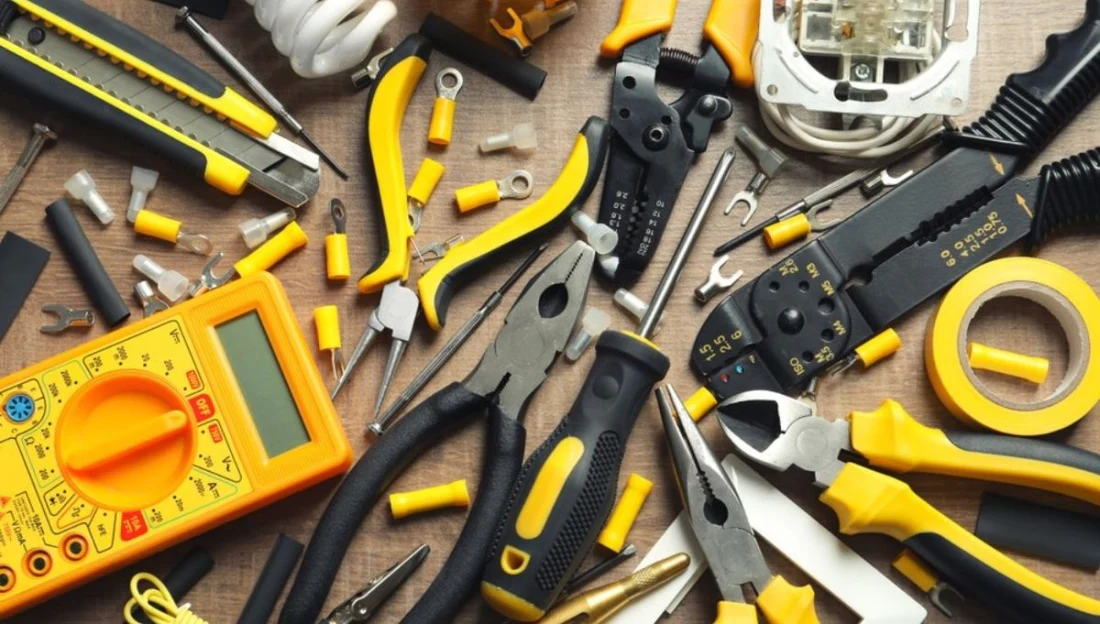Working on intricate electrical systems demands more than just experience and technical know-how—it requires the right tools. Whether you’re troubleshooting circuits, installing industrial panels, or maintaining precision equipment, the proper instruments can drastically improve efficiency, safety, and accuracy. For technicians, tradespeople, and electrical contractors alike, investing in quality equipment is not just convenient—it’s essential.
Diagnostic Tools for Signal Testing and Circuit Analysis
Accurate diagnostics are crucial across all areas of electrical work, from residential to industrial systems. Instruments like digital multimeters, clamp meters, and insulation testers verify continuity, insulation integrity, and load performance. These tools are the foundation of fault detection, ensuring systems run safely and within spec.
More advanced testing is needed for fast-switching devices, data communication, or sensitive electronics. In such cases, engineers often use high-performance oscilloscopes from Rohde & Schwarz, which allow precise visual analysis of voltage signals over time. This is key to identifying issues like noise, glitches, or timing faults.
Complementary tools serve specialised roles. A digital multimeter from Fluke is commonly used for precise readings in the field, while an LCR meter from Keysight Technologies helps assess inductance, capacitance, and resistance in components during circuit analysis or testing.
Hand Tools Built for Electrical Precision
While diagnostics offer insight, hand tools let professionals act. Essential tools include wire strippers, screwdrivers, crimpers, and cable cutters, each with a specific role in assembly and repair. Using the right tool reduces error risk and increases efficiency.
Tool quality matters. Options made from tempered steel last longer, and ergonomic grips minimise fatigue during extended use. VDE-certified insulated tools provide additional protection when working near live parts, essential in high-risk settings.
For repetitive tasks, ratcheting mechanisms or spring-loaded designs can speed up work and reduce hand strain. Small upgrades like these can have a noticeable impact over time, particularly on large projects.
Soldering Equipment for Component-Level Work
In electronics, PCB repairs, or fine wiring jobs, soldering tools are indispensable. A temperature-controlled soldering station prevents overheating, protecting component integrity. Quality stations also offer better thermal recovery, ensuring consistent performance.
Supporting tools such as solder wick, desoldering pumps, and flux pens aid in rework and repair without damaging boards. Fume extraction systems are also important to limit exposure to hazardous vapours and improve workplace safety.
Soldering quality depends on tool control and tip condition. Regular maintenance—cleaning and replacing tips when needed—ensures accuracy and extends tool life, which is especially important under project deadlines.
Keeping Your Installations Organised and Maintainable
Proper cable management improves safety, clarity, and appearance. Tools like heat shrink tubing, spiral wrap, and cable trunking help keep wiring secure and compliant with standards. Separating high- and low-voltage wiring also reduces the risks of interference or shorts.
Labelling systems are equally important. Durable label printers make it easier to trace and maintain circuits, particularly in commercial settings where downtime is costly. Clear identification saves time and reduces errors during future inspections.
In harsh environments, weather-resistant labels and tubing preserve markings over time. A tidy, well-labelled setup reflects professionalism and simplifies follow-up work for future teams.
Safety Equipment That Protects Lives
No task is complete without proper personal protective equipment (PPE). Items like arc-rated clothing, face shields, gloves, and insulated mats safeguard workers from electric shock and arc flash incidents, still common hazards on job sites.
Following AS/NZS 4836:2023 ensures compliance with Australian safety standards. These guidelines cover safe work near live parts, isolation procedures, testing for dead, and the use of lockout/tagout systems.
PPE should never be optional. The consequences of neglect, injury, downtime, or legal liability far outweigh the cost of quality protection. Tradespeople who prioritise safety also reinforce trust in their workmanship.
Equipping Yourself for Excellence in Electrical Work
Success in electrical work depends on preparation as much as skill. From diagnostics and precision tools to soldering gear and safety equipment, each piece plays a role in delivering work that’s safe, efficient, and professional. With the right tools at hand, tradespeople are better equipped to meet today’s technical challenges—and do so with confidence and reliability.

